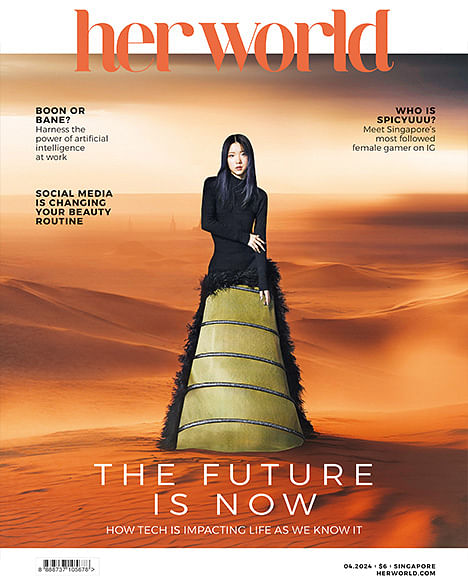
Image: Vichaya Kiatying-Angsulee/123rf
For those of you familiar with the five stages of grief in psychology – denial, anger, bargaining, depression and acceptance – did you know that these stages are pretty similar in the love journey of a relationship? We explore each stage’s unique challenges and how to navigate them.
1. Denial: The Honeymoon
It’s not as bad as it sounds. In the context of a relationship, this refers to more of a general denial of each other’s flaws. Known popularly as the sweet “honeymoon” stage, this is that rose-tinted, butterflies-in-my-stomach feeling that kicks off most freshly minted relationships. Here, most couples are still on their best behaviour and constantly trying to impress. The relationship high is heady and intoxicating, and both parties are still unfamiliar with each other’s bad habits, or can still choose to see them as endearing. Here, nothing seems too daunting a problem as romantic euphoria masks all possible annoyances.
2. Anger: The Power Struggle
When the honeymoon stage is over, frustrations with each others’ shortcomings or conflicting values, habits and priorities begin to surface. This often turns into quarrels with couples picking at each other’s faults. To survive this stage, focus on the reasons why you fell in love in the first place, and to be less accusatory in tone when you do argue. Try “I would love it if we could spend more time together. What about a movie this weekend?” instead of “Why can’t you spend more time with me?” Also, remember that conflict is not always bad, as dealing with it maturely can lead to an even better understanding of what makes each other tick.
3. Bargaining: The Art of Compromise
After all that anger has subsided, you’ll realise that differences are inevitable, and that you have to work them out. Enter the “Bargaining” stage, where you now try to solve the problem. By talking and being non-confrontational, both parties can agree on compromises that will make both feel reassured and happy in the long-term. For example, if he hates that she is overly-friendly to her guy friends, she’ll agree to keep her distance and ask him along occasionally to all hang out, while he’ll meet her halfway by giving her the benefit of doubt. By seeking to avoid bad things through alternatives, both partners can be kept happy by a willingness to try alternative solutions to solve problems.
4. Depression: Getting Bored
This is a little more benign in a long-term relationship. Couples who have been together for awhile might start to feel bored with their partner and stuck in a rut, much like how depression makes everything look hopelessly dull and pointless. Besides trying new things together, it’s also important to recognise your own part in the relationship – you’re half of it after all! If you’re bored, suggest new places to go or change your perspective. Instead of viewing your partner as ‘boring’, take that your relationship needs some work to spice it up, and you can start talking about the things you’ve always wanted to try or do. It takes two hands to clap, so make sure he or she is making an effort as well!
5. Acceptance: “We Accept Each Other For Who We Are”
This is the ultimate goal in long-term relationships. Here, you’re no longer putting up a front, and have achieved a high-level of comfort and intimacy with each other. You know your partner’s flaws but have either come to terms with them or learnt to appreciate the good. You also know that relationships take work, and both sides are willing to compromise. While the romance might not be as exhilarating as in the “Honeymoon” stage, it has evolved into a more mellow, warm and lasting kind of love.
These stages of a relationship are not necessarily linear – one day you might be quarrelling and the next day, feeling wonderful honeymoon sparks! Big life changes can also switch up the gears of your relationship in an instant. Long-distance job opportunities, for example, could strain the relationship when you have different priorities. Regardless of the stage you’re in, it’s best to keep an open mind and enjoy the ride!
This article was originally published on LunchClick’s blog. LunchClick is Singapore’s first female-centric dating app, find out more here.

